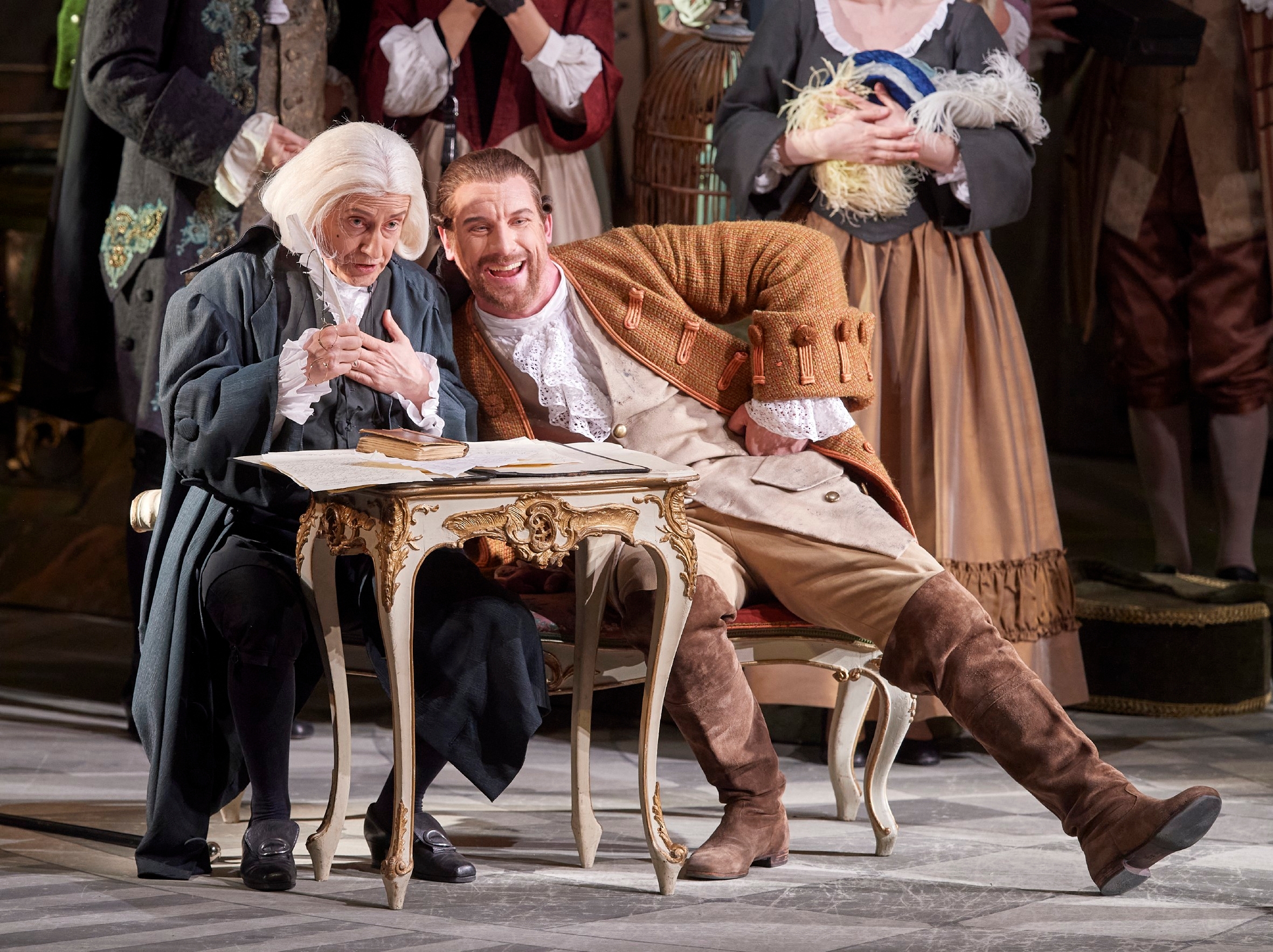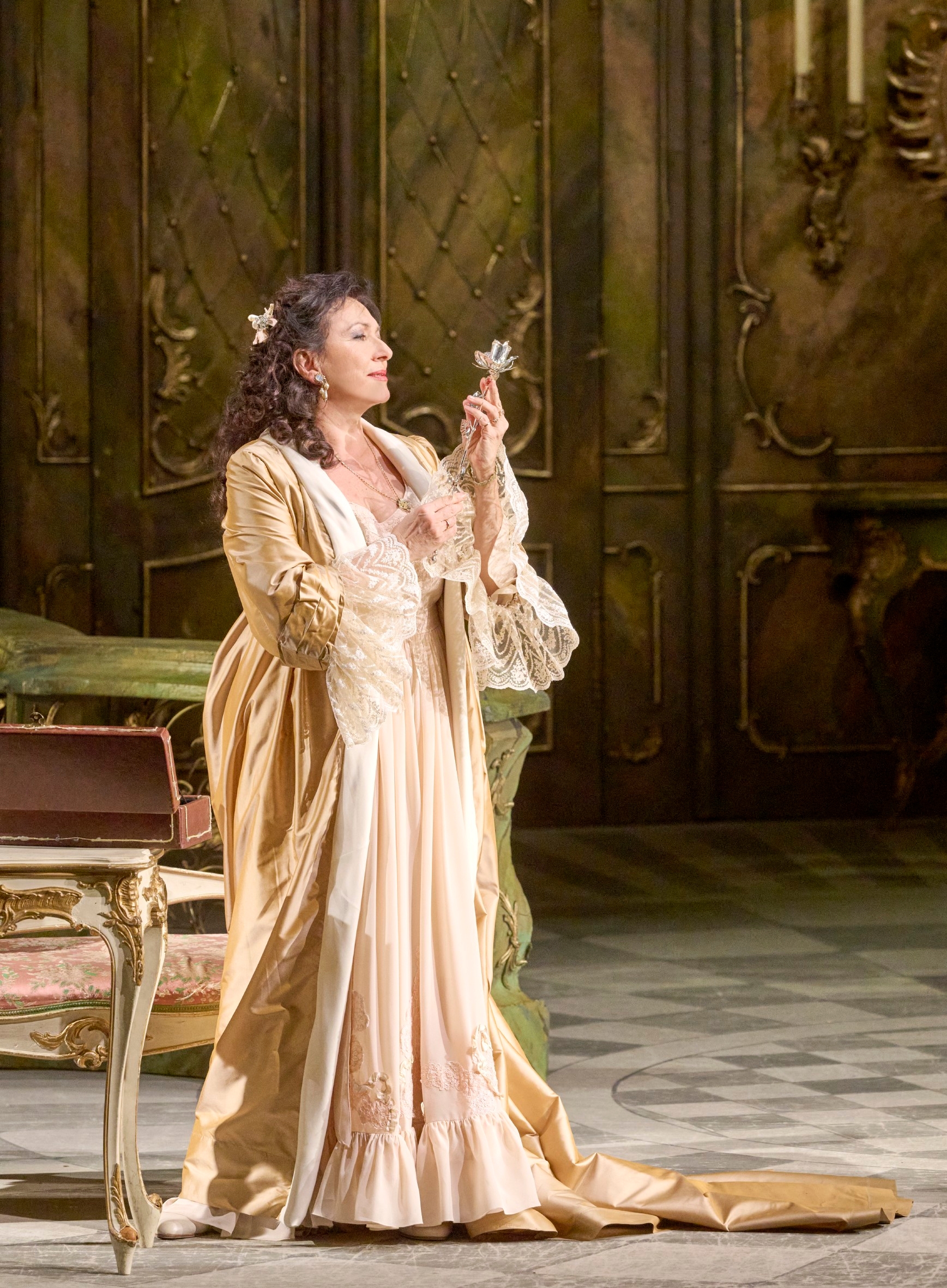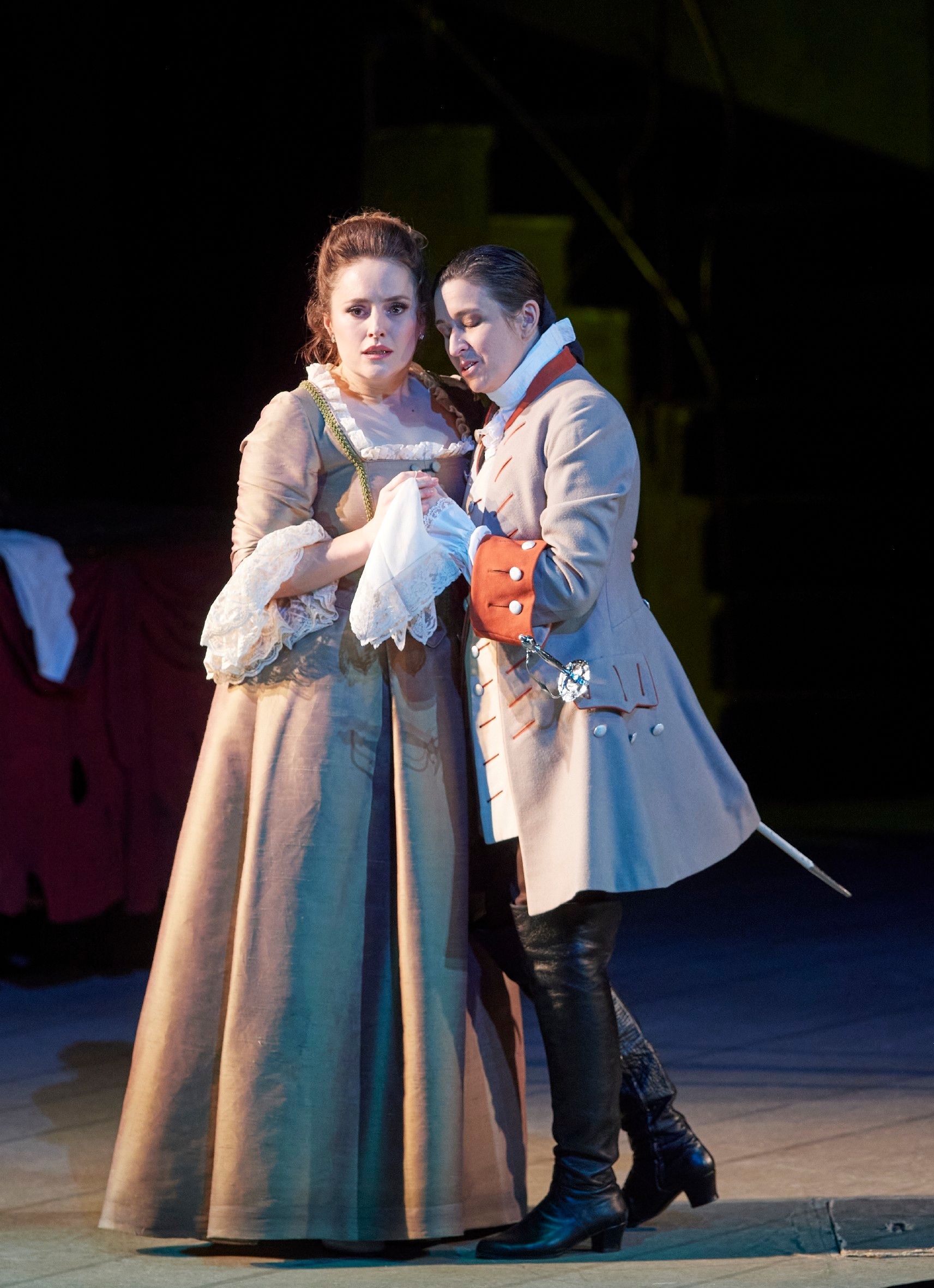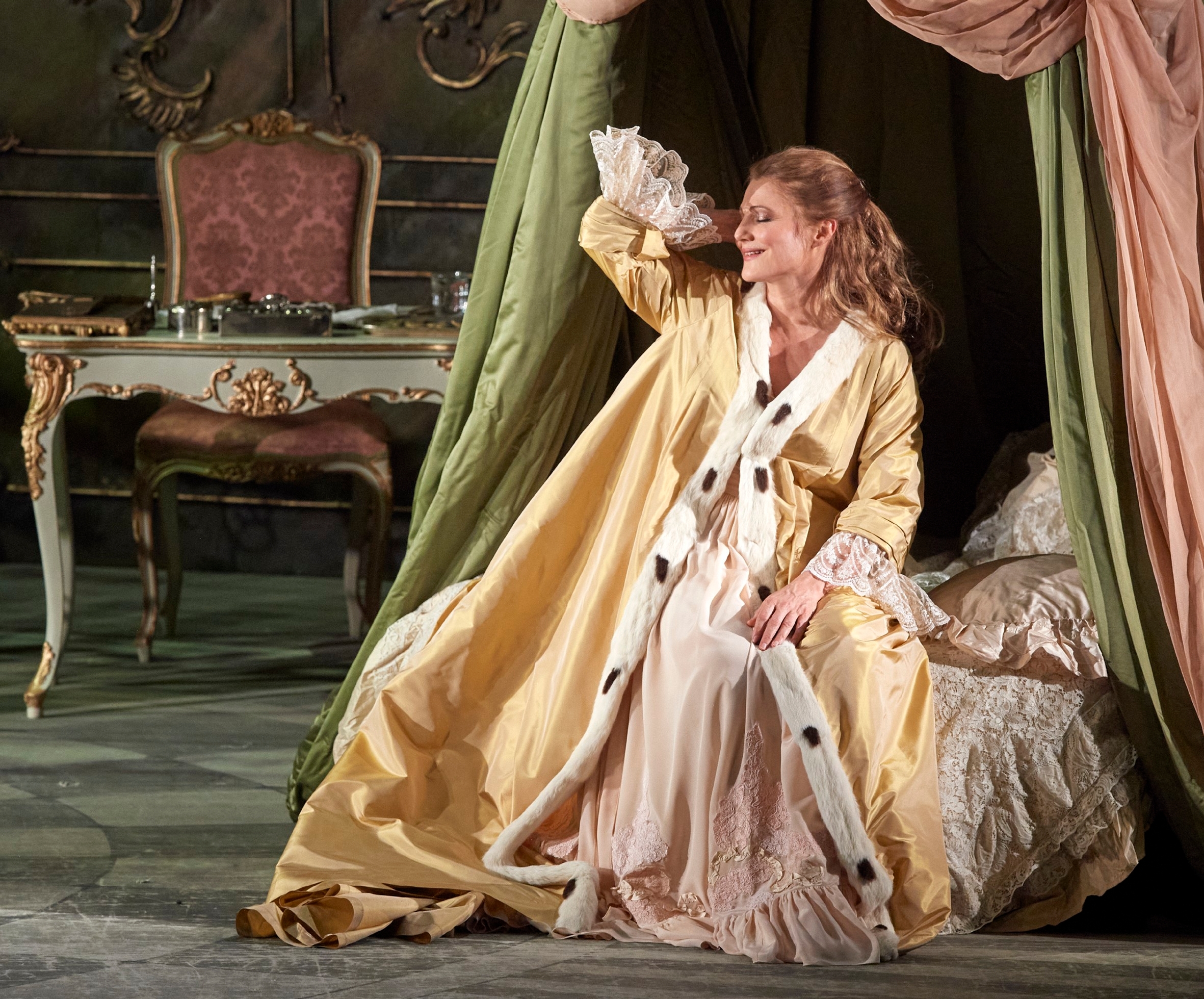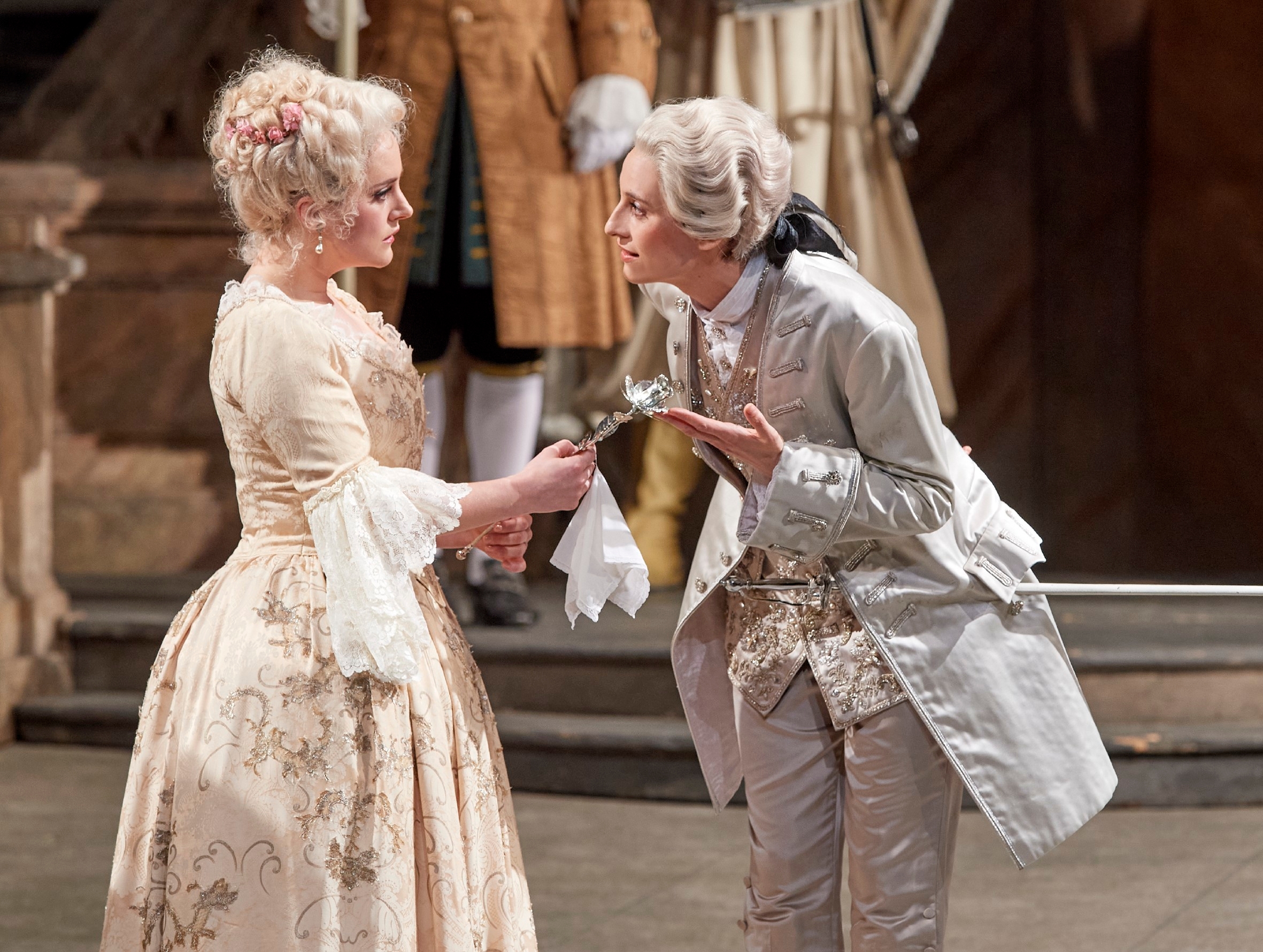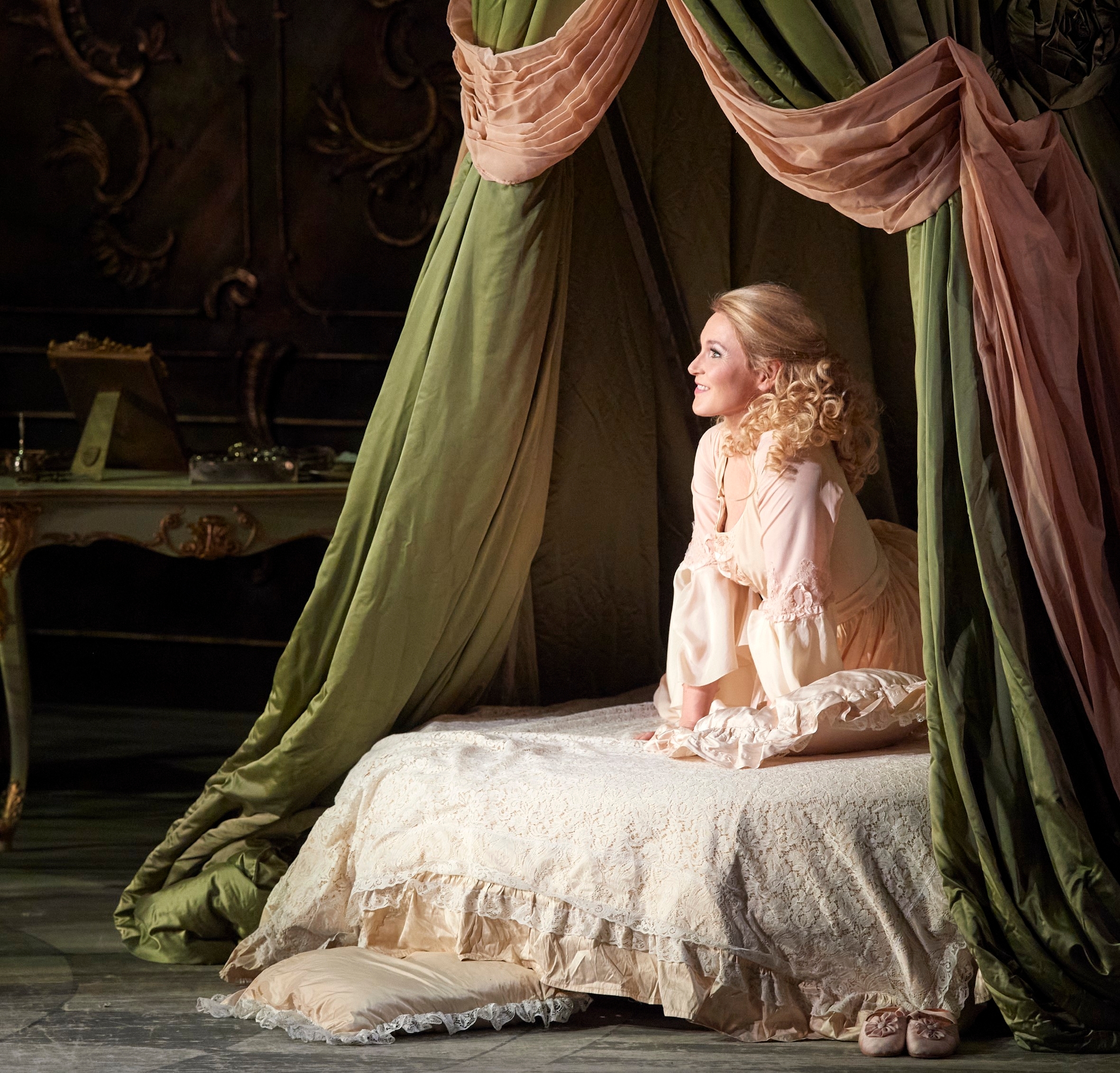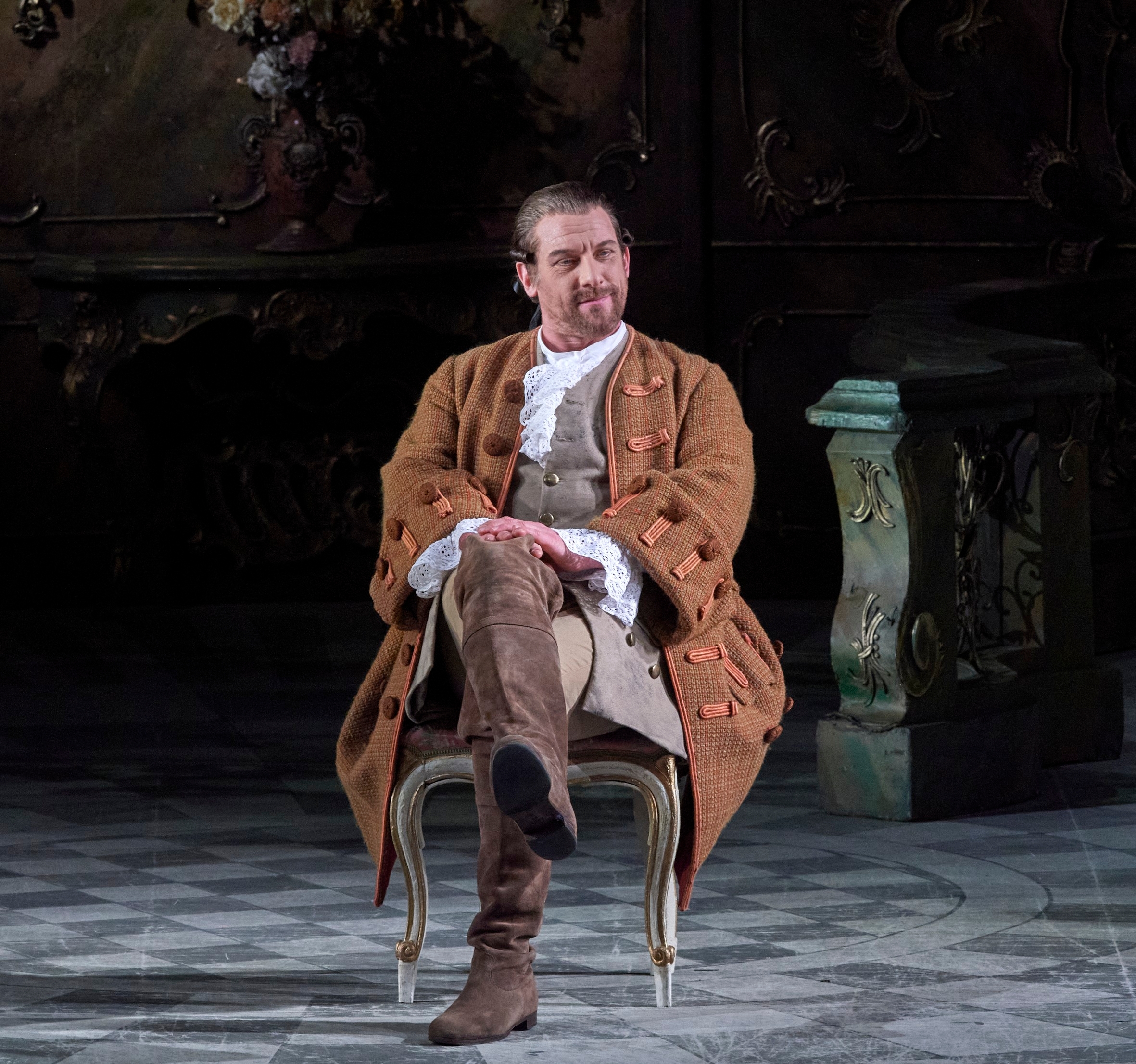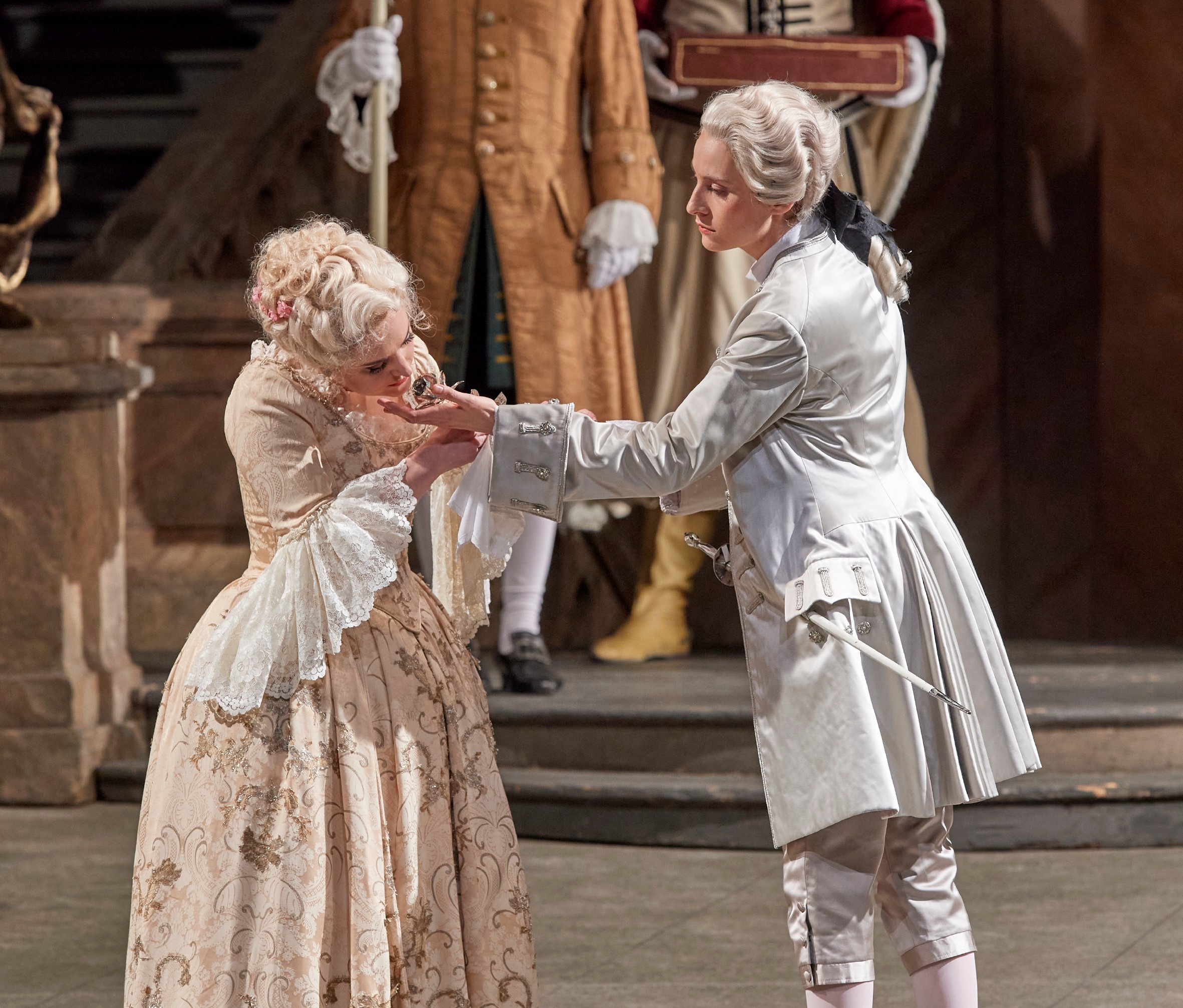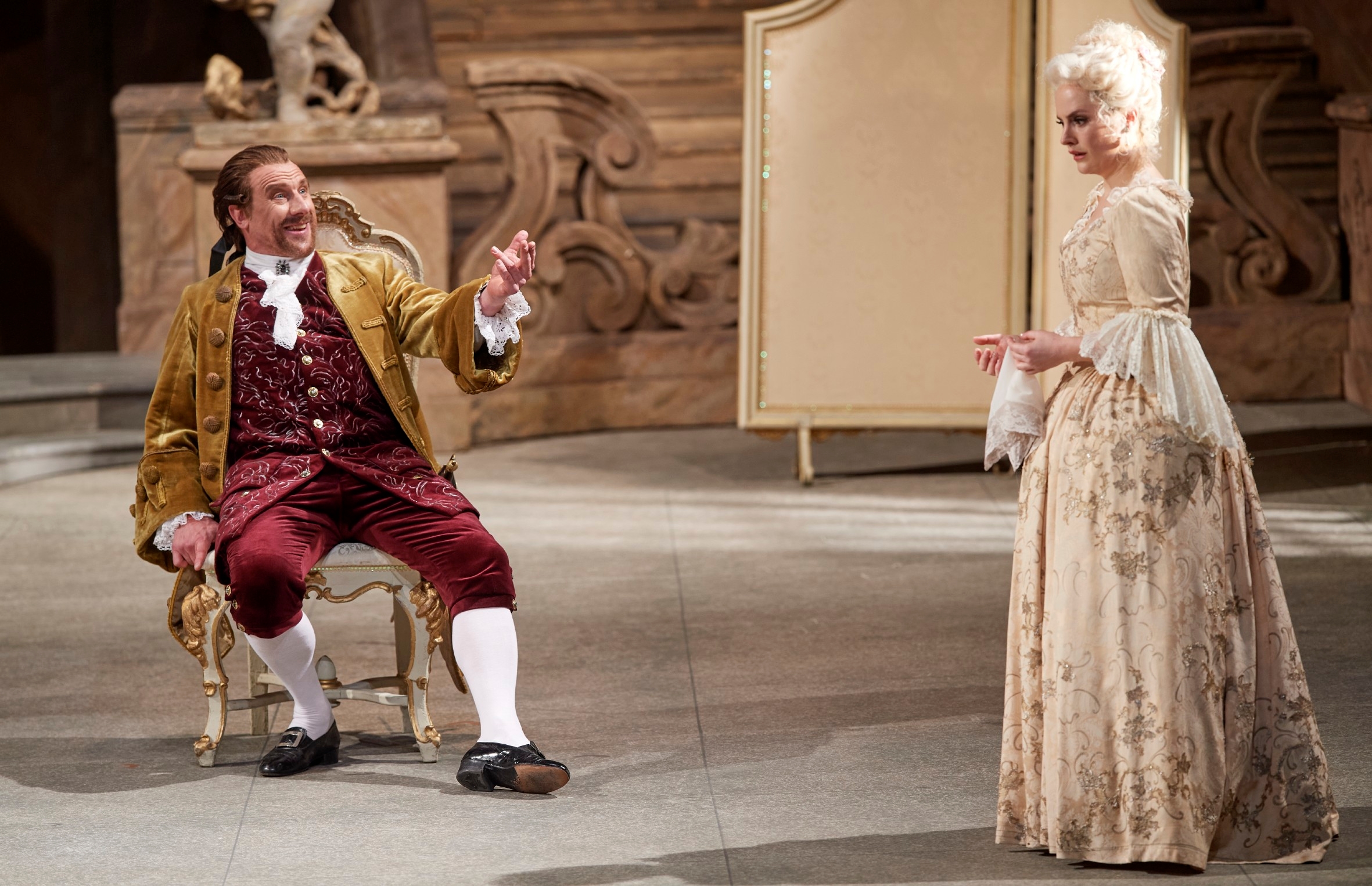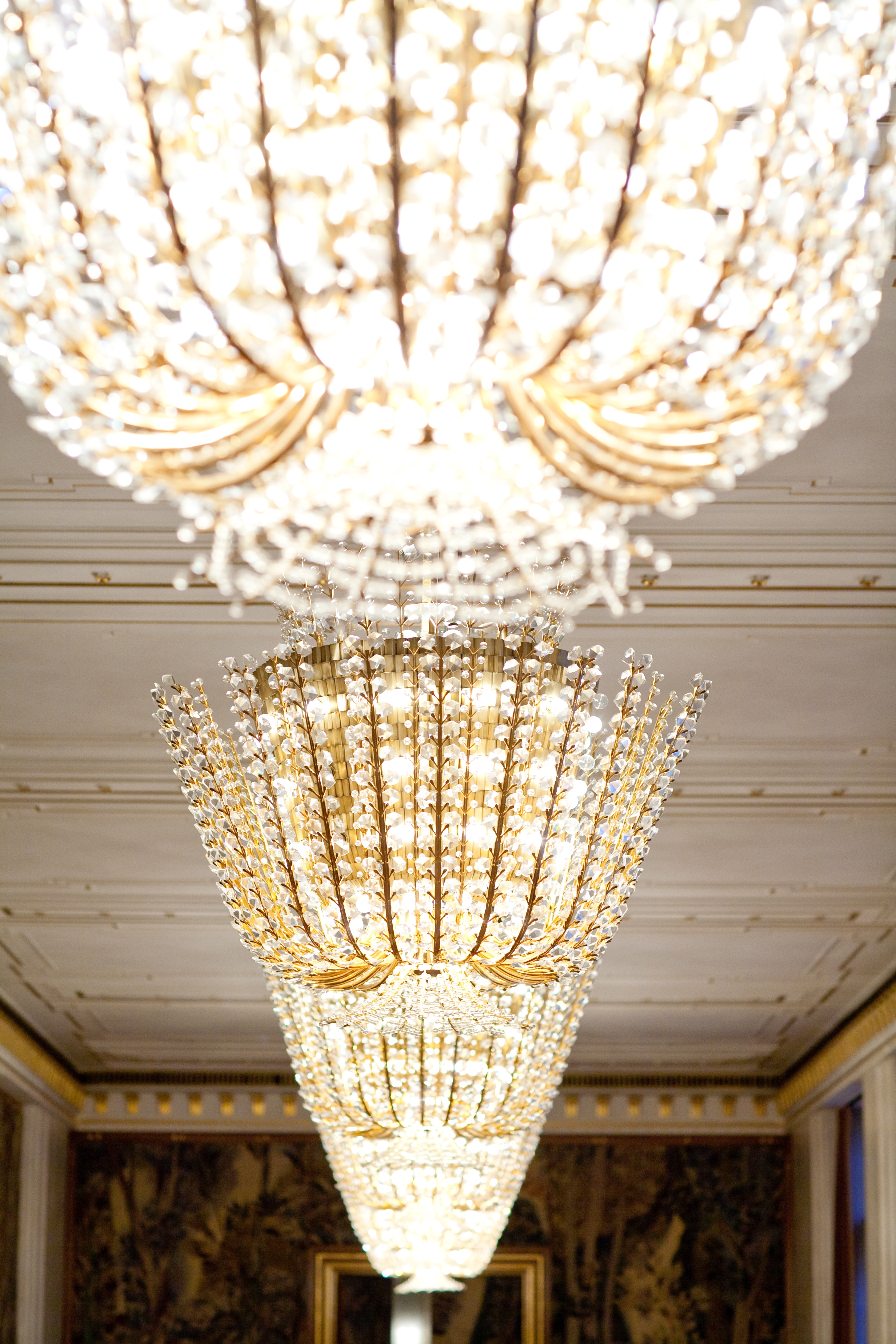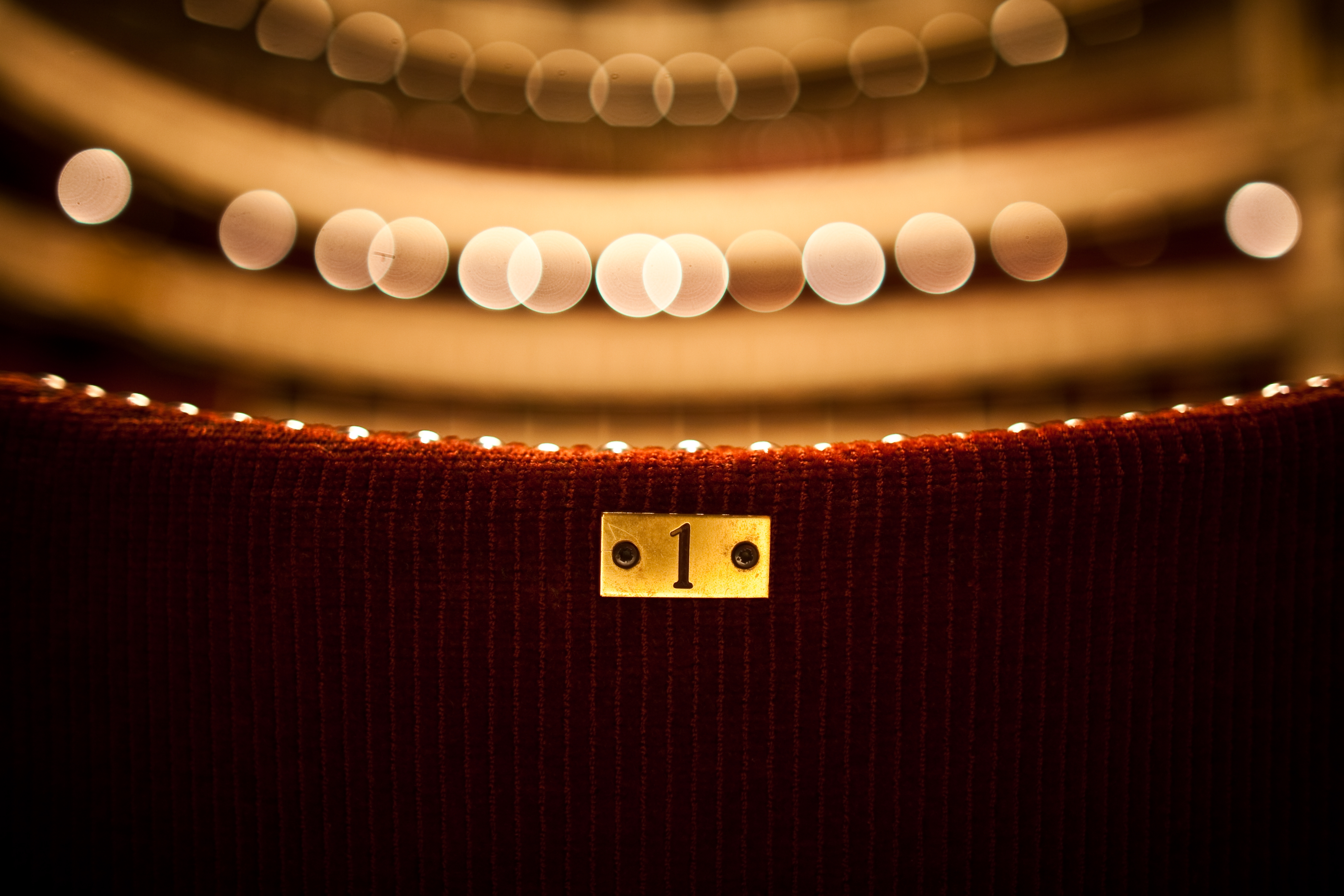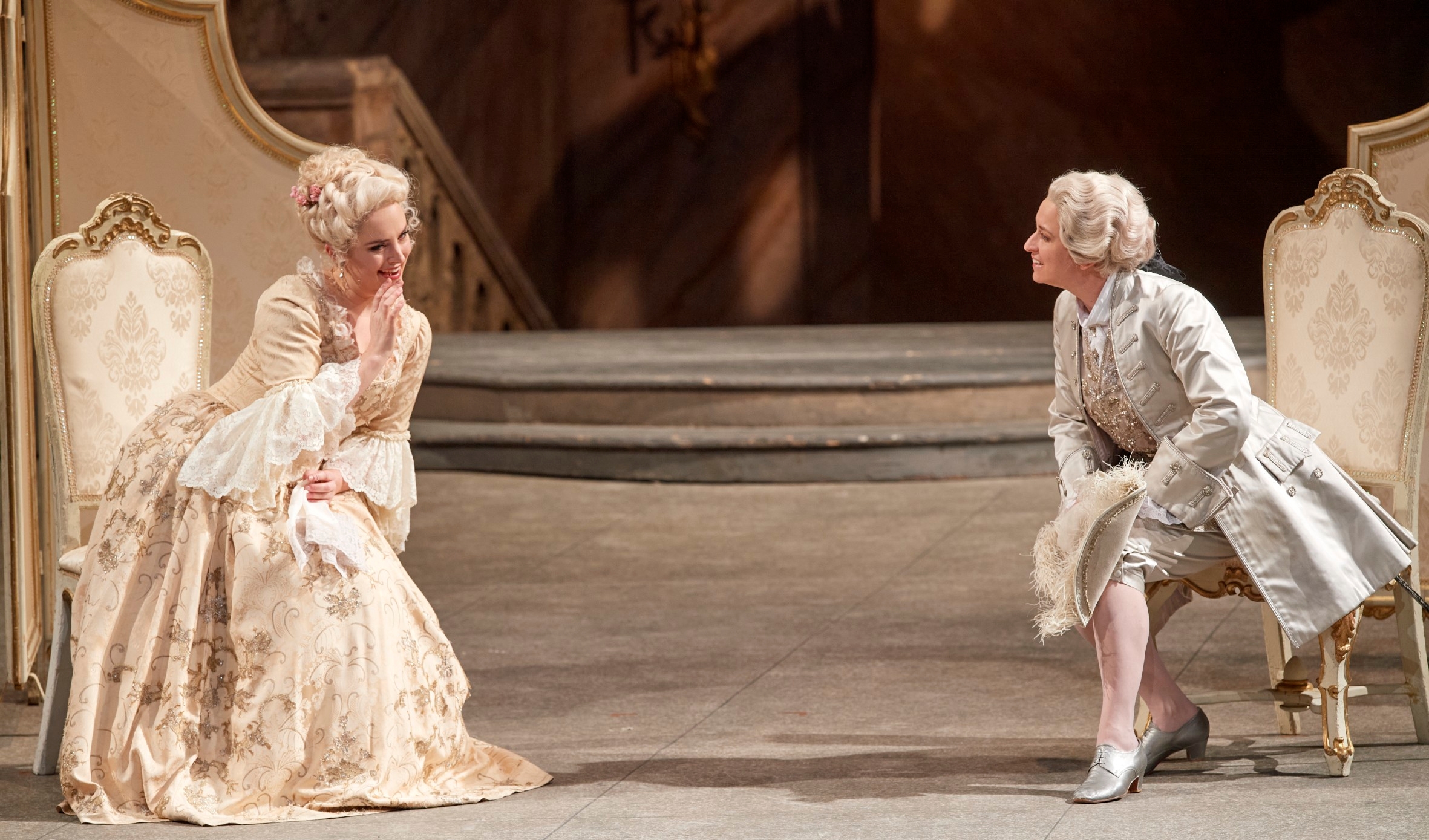
Short Summary
The Marschallin has spent the night with her young lover Octavian. Their morning get-together is disturbed by Baron Ochs auf Lerchenau.
He asks the marshal for a suitable candidate to deliver a silver rose to his very young bride Sophie - daughter of the newly ennobled, rich Lord of Faninal. The Marschallin suggests Octavian. She reflects melancholically on the transience of life. With a »light heart and light hands«, she wants to let Octavian go one day..
When he meets Sophie, he falls in love with her. Sophie, who does not want to marry the unattractive Ochs, feels the same way about Octavian. But it is only after Baron Ochs has been set up and has become unacceptable as a future husband that Sophie and Octavian's happiness in love seems assured. Especially as the Marschallin remains true to herself and lets Octavian go, albeit with a heavy heart.
Der Rosenkavalier
Storyline
The Marschallin has spent the night with her young lover Octavian.
Their morning get-together is disturbed by Baron Ochs auf Lerchenau. He asks the marshal for a suitable candidate to deliver a silver rose to his very young bride Sophie - daughter of the newly ennobled, rich Lord of Faninal. The marshal proposes Octavian.
On April 13, 1968, the production celebrated its premiere at Haus am Ring - with Leonard Bernstein conducting, Christa Ludwig in the role of the Marschallin and Walter Berry as Ochs. For the revival in December 2010, director Otto Schenk personally breathed new life into his production with stage designs by Rudolf Heinrich. The director: "Everything I invent in a production, I invent thanks to those with whom I am allowed to work. Whereby Der Rosenkavalier is a very 'given' work. Much is predetermined by the music and text and only needs to be reproduced. There is a rococo milieu that is patinated by Art Nouveau; there is an (invented) language that has to be used very realistically. And there are moments when the pure beauty really degenerates. In my five productions of this opera, I have always tried to fulfill these conditions, it was never my style to invent something contrary - I don't have that talent."
Musical
Three musical ≫spheres≪ determine the musical structure of Der Rosenkavalier: the parlando, which dominates for long stretches, the lyrical and melodically broadly developed solo and ensemble scenes and the waltzes, which primarily (but not exclusively) characterize the world of Ochs auf Lerchenau. If these ≫spheres≪ therefore already have a leitmotivic - or leitidiomatic - function, themes and motifs in the sense of memory motifs are also taken up again at thematically analogous points, albeit not in the stringent manner that occurs in Wagner's late works. In addition to motifs, however, key characteristics are very important for Strauss's musical thinking, and their significance in Der Rosenkavalier is already evident in the first sketches in Hofmannsthal's text drafts: Even before themes and motifs, Strauss notated the key of the respective section. (Thomas Leibnitz)
What should the new "play opera" be called? This question was the subject of a correspondence between Hofmannsthal, Strauss and Harry Graf Kessler, the co-author of the scenario, from 1909 onwards. Kessler initially wanted Quin-quin, which Hofmannsthal rejected almost indignantly, not without making suggestions himself: Mariandel was a possibility, "with some adjective (but which one?) Or Der Rosencavalier, what do you say?" Kessler initially said nothing and instead changed the focus: The ruffian in need of love was one of his suggestions - Baron von Ochs was to become the title character. In the same waters came a suggestion from Strauss, which Hofmannsthal had long favored: Der Ochs von Lerchenau und die silberne Rose. "I am quite firmly in favor of the title Ochs von Lerchenau, which places the buffo in the middle, hints at the coarse element and sounds and looks quite good," Hofmannsthal wrote to Kessler. When he finally pushed through the Rosenkavalier after all, the Count sulked in a letter ("abominable title!"), and Richard Strauss formulated his approval (in May 1910 to Alfred Roller) as a protest: "I don't like the Rosenkavalier at all, I like the Ochs! But what can you do. Hofmannsthal loves the delicate, the aesthetic, my wife commands: Rosenkavalier. So Rosenkavalier! The devil take him!"
